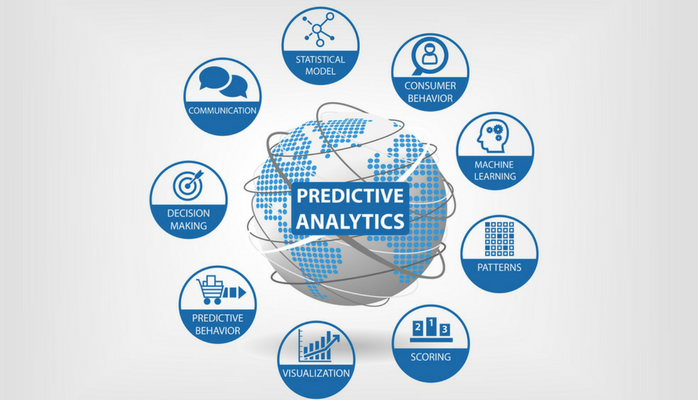We live in an incredible time. More data was created last year than in the 5,000 years previous. Businesses have access to an unprecedented amount of information which can help them to anticipate the challenges and opportunities that will shape them in the future. One such company is Facebook, who utilizes millions of data points to identify trends and patterns and offer recommendations based on a user’s interests. Their well-defined algorithms have led to their incredible success, with over 2 billion active users. But you certainly don’t need to be as massive as Facebook to leverage company data to the full extent. In fact, if you’re not capitalizing on the power of predictive analytics, your business is missing out on key opportunities.
Improve Your Business Outcomes
Data and analytics can be game-changing information for the performance and success of an organization. The ability to forecast sales, production needs, peak business, and service demand helps companies to more efficiently run their operations. By utilizing this data and getting ahead of the industry curve, companies can reduce cost, improve quality, and boost consumer satisfaction.
For example, Johns Hopkins University uses their analytics to discover new scientific measurements and models in the hopes of predicting the trajectory of diseases in current patients. They’ve also used it to lower the risk of misdiagnosis, limiting adverse reactions to medication or procedures, by examining each patient’s unique genetic makeup. In short, big data plays a massive role in the execution and the quality of their services, putting them ahead of the curve in the healthcare field.
Reduce Risks
There are few certainties in the business world. The complexity of the market, evolving technology, fluctuating competition, and customer demands often turn business decisions into a gamble. However, predictive analytics can help make sense of these factors to reduce the risk involved with decision making.
For example, let’s look at Netflix, who wanted to make their mark with original content – a potentially risky move that would impact both their reputation and their bottom line. Data told them there were common viewers among David Fincher’s “The Social Network” and the original British version of “House of Cards.” The data helped them predict where audience demand might be, allowing them to create highly targeted content. Enter the American version of House of Cards. They invested a reported $100 million into the show – a seemingly high-risk decision with astronomical impact if it fell flat. Thanks to predictive analytics, that risky decision was made with confidence, and Netflix saw its subscriber base grow by 10% as a result. It’s a great example of how using predictive analytics to identify future market trends can allow you to act nimbly and innovatively while minimizing risk.
Boost Cybersecurity
Can you foresee where data breaches are going to happen? Preventative measures are the only sure-fire way to reduce cybersecurity threats, so some are turning to predictive analytics as a way to determine their vulnerabilities and security priorities. This data doesn’t just tell you where cybercriminals have attempted to attack, it helps forecast where they’re going to hit next, if there are any weak points in the code, and how well prepared your systems are.
Last year, cyber-attacks cost U.S. businesses an average of $1.3 million. By identifying and mitigating potential threats, you’ll be saving both your business and your bottom line. Plus, automating more of the workload takes pressure off of your IT department; instead of spending hours attempting to find weaknesses and compile reports, they can focus their efforts on interpreting findings and protecting the system.
What Your Business is Missing If You Aren’t Using Predictive Analytics
As big data and machine learning begin to take a decisive role in every industry, it’s fair to assume that predictive analytics are going to play a crucial part in shaping the future of business decisions. With so much data floating out there, from consumer satisfaction statistics to cybersecurity measures, collecting analytics can be revolutionary for companies that value innovation. Anticipate challenges, alleviate future pain, and set your organization up for success with the power of predictive analytics.
